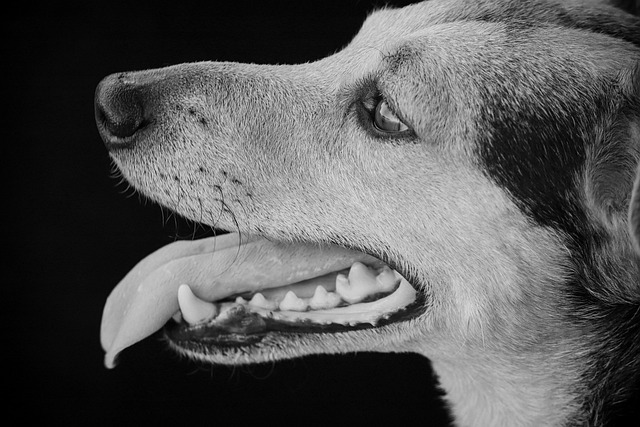
Canine Teeth Cleaning: DIY vs. Professional
In today’s world, our furry companions hold a special place in our hearts. We pamper them with love, toys, and, of course, delicious treats. But there’s one aspect of pet care that often gets overlooked until it becomes a problem – dental health. Canine teeth cleaning is a crucial part of keeping your dog healthy and happy. However, the big question remains: should you handle it yourself, or seek the expertise of a professional? In this article, we’ll dive deep into the world of canine teeth cleaning and explore the pros and cons of both DIY and professional approaches.
Table of Contents
- Introduction
- The Significance of Canine Teeth Cleaning
- DIY Canine Teeth Cleaning
- The Basics of At-Home Dental Care
- Choosing the Right Tools
- Step-by-Step Guide to DIY Cleaning
- Common Mistakes to Avoid
- Professional Canine Teeth Cleaning
- Benefits of Professional Dental Care
- What to Expect During a Professional Cleaning
- Cost Considerations
- Finding a Reliable Veterinarian or Pet Dentist
- Comparing DIY and Professional Cleaning
- Effectiveness in Plaque and Tartar Removal
- Safety and Anesthesia Concerns
- Time and Convenience
- Long-Term Oral Health
- When to Choose DIY Teeth Cleaning
- Ideal Candidates for DIY
- Maintenance Between Professional Cleanings
- When to Opt for Professional Cleaning
- Signs Your Dog Needs a Professional Cleaning
- Special Cases: Senior Dogs and Dental Issues
- Balancing Act: Combining DIY and Professional Cleaning
- Creating a Dental Care Routine
- Saving Money with Preventive Care
- The Importance of Consistency
- Why Regular Dental Care Matters
- FAQs (Frequently Asked Questions)
- What are the risks of not cleaning my dog’s teeth?
- Can I use human toothpaste for my dog?
- How often should I clean my dog’s teeth?
- Is anesthesia always necessary for professional cleaning?
- What can I do to make teeth cleaning less stressful for my dog?
- Conclusion
- Making the Right Choice for Your Canine Companion
Introduction
The Significance of Canine Teeth Cleaning
Our dogs rely on their teeth for a multitude of tasks, from eating to playing. Just like with humans, neglecting their oral health can lead to various dental problems, including gum disease, tooth decay, and bad breath. These issues can cause discomfort and pain, affecting your dog’s overall well-being. Hence, canine teeth cleaning is not just an option; it’s a necessity.
But the real question is whether you should take matters into your own hands or leave it to the professionals. Let’s explore both options in detail.
DIY Canine Teeth Cleaning
The Basics of At-Home Dental Care
Maintaining your dog’s dental health at home is a proactive approach to oral hygiene. It involves regular brushing, providing dental treats and toys, and keeping an eye out for any signs of trouble. This method is ideal for preventing dental issues before they become serious.
Choosing the Right Tools
Before you start brushing your dog’s teeth, you’ll need the right tools. Look for toothbrushes and toothpaste specially designed for dogs. Human products can be harmful to them.
Step-by-Step Guide to DIY Cleaning
- Prepare Your Dog: Get your dog accustomed to having their mouth touched.
- Introduce Toothpaste: Let your dog taste the toothpaste to build trust.
- Brush Gently: Use a dog toothbrush to clean their teeth in a circular motion.
- Reward and Repeat: Praise and reward your dog to create a positive association.
Common Mistakes to Avoid
- Brushing too aggressively can harm your dog’s gums.
- Using human toothpaste with fluoride can be toxic to dogs.
- Neglecting consistency in your dental care routine.
Remember that DIY cleaning is most effective when used as a preventive measure.
Professional Canine Teeth Cleaning
Benefits of Professional Dental Care
Professional dental cleanings offer a thorough and deep cleaning of your dog’s teeth and gums. Veterinarians or pet dentists are trained to identify and address underlying issues.
What to Expect During a Professional Cleaning
- Examination: The vet will examine your dog’s mouth, teeth, and gums.
- Anesthesia: In most cases, anesthesia is used to ensure a stress-free experience.
- Cleaning: Plaque and tartar are removed using specialized tools.
- Polishing: The teeth are polished to prevent future plaque buildup.
Cost Considerations
Professional cleanings can be more expensive than DIY methods, but they are an investment in your dog’s health. The cost varies based on your location and your dog’s specific needs.
Finding a Reliable Veterinarian or Pet Dentist
Research and choose a reputable professional with experience in canine dental care. Ask for recommendations from fellow pet owners if needed.
Comparing DIY and Professional Cleaning
Effectiveness in Plaque and Tartar Removal
Professional cleanings are more effective at removing built-up plaque and tartar, which can be challenging to tackle with DIY methods alone.
Safety and Anesthesia Concerns
DIY cleaning is generally safer, but professional cleanings are safe when conducted by experienced veterinarians who take precautions.
Time and Convenience
DIY cleaning can be done regularly at home, offering convenience. Professional cleanings are typically less frequent but provide comprehensive care.
Long-Term Oral Health
Balancing DIY and professional cleaning can contribute to better long-term oral health for your dog.
When to Choose DIY Teeth Cleaning
Ideal Candidates for DIY
DIY cleaning is suitable for dogs with minimal dental issues and those comfortable with the process. It’s an excellent preventive measure.
Maintenance Between Professional Cleanings
Use DIY cleaning to maintain your dog’s oral health between professional appointments.
When to Opt for Professional Cleaning
Signs Your Dog Needs a Professional Cleaning
If your dog exhibits signs of dental problems, such as bad breath, swollen gums, or difficulty eating, it’s time for a professional cleaning.
Special Cases: Senior Dogs and Dental Issues
Senior dogs and those with existing dental problems may benefit from more frequent professional cleanings.
Balancing Act: Combining DIY and Professional Cleaning
Creating a Dental Care Routine
Establish a routine that includes both DIY and professional cleaning to ensure comprehensive care.
Saving Money with Preventive Care
Preventive care can reduce the likelihood of costly dental procedures in the future.
The Importance of Consistency
Why Regular Dental Care Matters
Consistency in dental care is key to ensuring your dog’s teeth and gums remain healthy throughout their life.
Conclusion
Making the Right Choice for Your Canine Companion
Ultimately, the choice between DIY and professional canine teeth cleaning depends on your dog’s needs, your comfort level, and your budget. Both approaches have their merits, and a combination of the two may be the best solution for many pet owners. What’s crucial is that you prioritize your furry friend’s dental health to keep them smiling and pain-free.
FAQs (Frequently Asked Questions)
What are the risks of not cleaning my dog’s teeth?
Neglecting dental care can lead to gum disease, tooth decay, and even systemic health issues in your dog.
Can I use human toothpaste for my dog?
No, human toothpaste is not safe for dogs. It often contains ingredients that can be toxic to them.
How often should I clean my dog’s teeth?
Regular brushing is recommended, ideally daily or at least a few times a week. Professional cleanings are typically needed annually or as advised by your veterinarian.
Is anesthesia always necessary for professional cleaning?
Anesthesia is commonly used to ensure your dog remains still during the procedure and doesn’t experience stress or discomfort.
What can I do to make teeth cleaning less stressful for my dog?
Start early, use positive reinforcement, and go slowly to make teeth cleaning a positive experience for your dog.
In conclusion, maintaining your dog’s dental health is a responsibility that shouldn’t be taken lightly. Whether you choose the DIY route or opt for professional help, the key is to take action and prioritize your furry friend’s well-being. Regular dental care can lead to a happier, healthier life for your beloved canine companion. We listed a few of our favorite dog teeth cleaning products below that we have used before with our pets.
